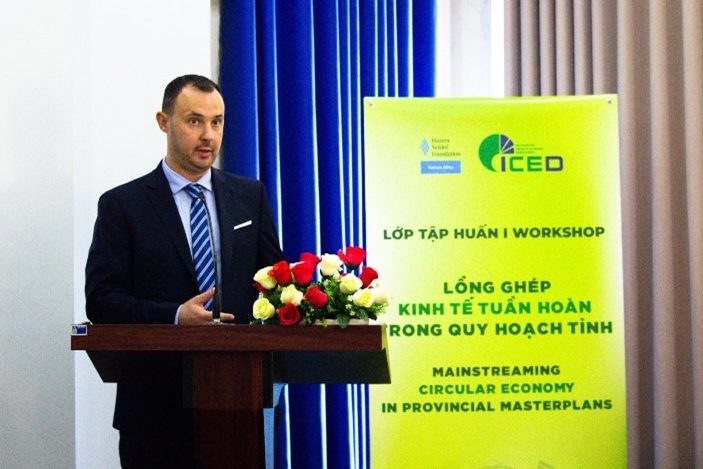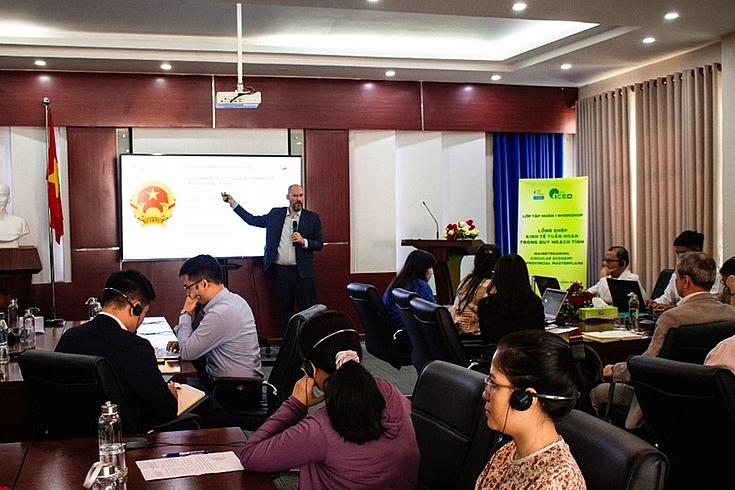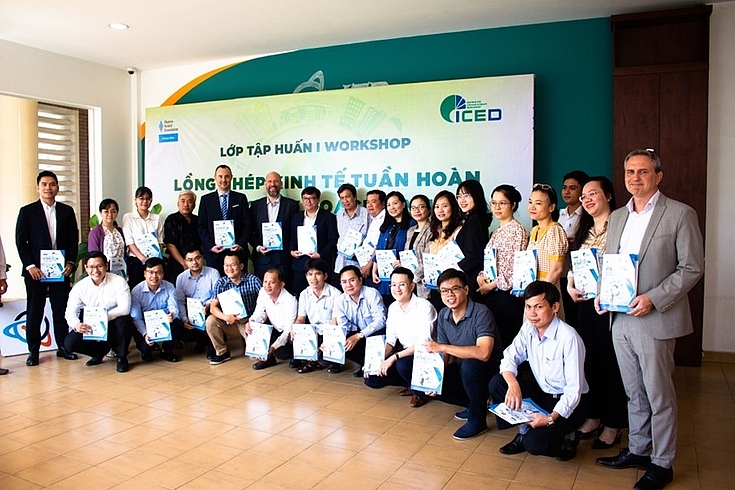Promoting the transition towards a circular economy
Training Workshop on “Mainstreaming Circular Economy in Provincial Masterplans”
Opening remark by Michael Siegner
HSF
The concept of CE is a chance to implement a future-proof sustainable economy and to counter the rise of negative consequences of climate change and environmental pollution for humanity and our planet. Recycling, reprocessing, and repairing materials and products are key elements when it comes to the efficient use of resources and a non-hazardous waste management. Moreover, the approach of CE provides for a decrease in energy consumption and emission output.
Since 2021 the Hanns Seidel Foundation (HSF) works together with the Ministry of Natural Resources and Environment (MONRE) on the promotion of circular economy (CE) in Vietnam. Vietnam not only wants to get closer to reaching Sustainable Development Goal (SDG) 12 which is sustainable consumption and production patterns, the country also has set the ambitious goal of net zero emissions until 2050. To achieve these goals the implementation of CE will be crucial. To the government at the national level, it is clear that a strategic rethinking towards CE approaches is important. But provincial leaders are often missing guidelines on how to do so. This leads to general problems for the country in implementing CE.
Mr Richard McClellan presented at the workshop
HSF
Given this background, HSF and ICED have worked on a white paper that provides practical inputs for provincial policy makers to mainstream CE practices into their socio-economic planning processes. The contents of this paper were presented at a workshop in Ho Chi Minh City to increase awareness and knowledge about CE at the provincial level. The overall objective of the workshop aims to facilitate decision-making in policy design and therefore to ease the transition to CE. Moreover, the workshop with its 35 participants provided a great possibility for the creation of a multi-stakeholder network of various representatives from the Department of Planning and Investment, Department of Agricultural and Rural Development and Department of New Countryside Development from six different provinces and cities in total. Other participants comprised researchers, experts, and representatives of consulting companies involved in the Provincial Masterplanning processes.
Participants of the workshop
HSF
Experts shared their knowledge about the CE principles and how these can be integrated in provincial masterplans, the structure of cities, agriculture, and in the energy sector. For this purpose, CE models were presented. Strategic management and legislation regarding CE have been addressed. Certain challenges and opportunities in this process were presented and discussed precisely.
Participants considered ways in which CE can be part of the provincial master plans. Various opportunities for CE-development in the provinces and what steps can be taken to achieve this were highlighted, for example, the development of interdisciplinary approaches and the intensification of research on CE.



